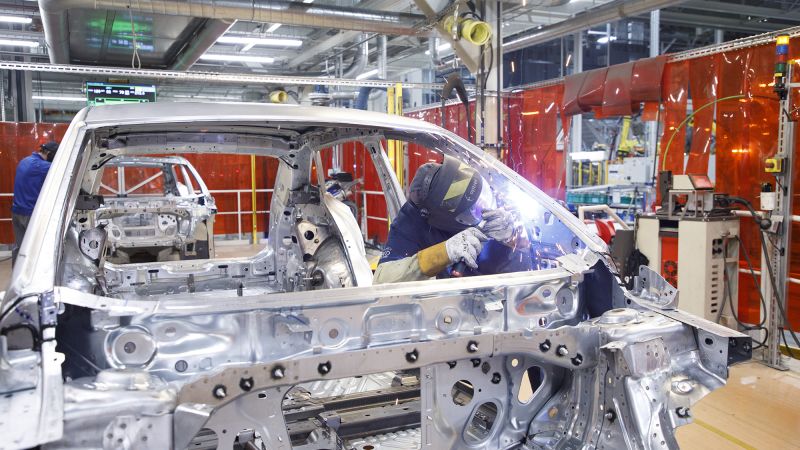Renee Berry has worked at the Volkswagen plant in Chattanooga, Tennessee since it opened in 2010 and has witnessed two previous votes against joining the United Auto Workers union. However, she believes that the upcoming third vote will be different, noting a shift in the atmosphere with more pro-union workers and a change in sentiment among some who were previously against unionization. The outcome of this vote could potentially spark a revolution in the US auto industry, as it has been almost 50 years since a new automaker has unionized.
The auto industry in the US is currently divided between unionized and non-unionized workers, and a successful unionization at the Volkswagen plant in Tennessee could provide unions with a significant foothold in the South, an area traditionally resistant to organizing efforts. The results of the vote are anticipated to be closely contested, as previous votes in 2014 and 2019 were also narrow, with the majority voting against joining the union. The plant has since expanded its workforce, and supporters of the union are hopeful that newer, younger workers may be more receptive to union representation.
The UAW’s bargaining position has improved since previous votes, as they recently negotiated record wage increases at major automakers such as GM, Ford, and Stellantis. This achievement, along with the support for the striking workers, has bolstered the case for unionization among some employees at the Volkswagen plant. Despite the company quickly matching the UAW contracts with an 11% raise, workers like Berry believe that the UAW deals offer better pay and benefits, motivating them to support the union.
While some workers fear potential job loss if the union secures higher pay, others like Kelcey Smith are drawn to the idea of improved compensation and benefits to better support their families. The average worker at the Volkswagen plant makes around $60,000 a year, but unionized workers under the recent UAW contract earn significantly more, around $75,000 a year before overtime and bonuses. The desire for financial security and better working conditions is driving many employees to consider union representation.
The neutrality of the company in the election is a rare occurrence in union representation elections, where management typically discourages unionization efforts. The influence of unions in Germany, where the main Volkswagen union has representation on the company’s board, is also a factor in the current situation at the Chattanooga plant. The UAW’s effort to organize workers at nonunion automakers extends beyond Volkswagen, with upcoming votes at other companies, signaling a larger movement within the industry.
The potential impact of the Volkswagen plant vote goes beyond Chattanooga, with implications for future organizing efforts and industry-wide contract negotiations. While the outcome may not immediately lead to unionization at other companies, it could set a precedent and build momentum for future organizing endeavors. Various stakeholders, including politicians, are closely watching the vote, as it could determine the future of union representation in the auto industry and impact job opportunities in different states. The involvement of political figures, such as President Biden, adds another layer of complexity to the unionization debate, with differing viewpoints among workers on the role of unions in politics.


